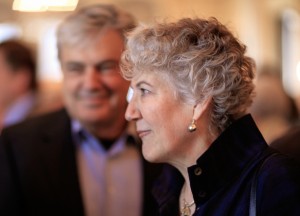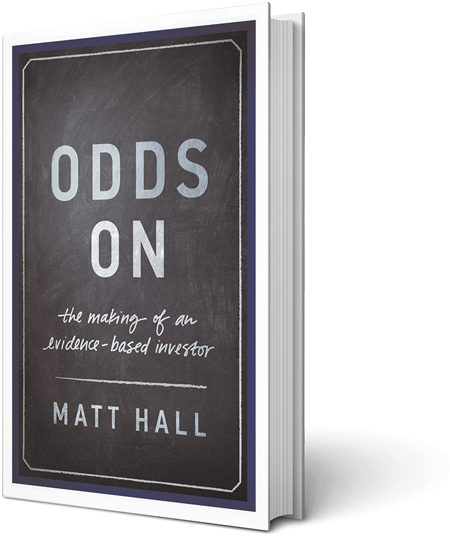When we started Hill Investment Group with my business partner Rick, there was no way to know if we would succeed. What we did know was that we were going to do things differently.
Here’s an excerpt from Odds On: The Making of an Evidence-Based Investor that tells part of our story:
One of our breakthroughs came back in 2009, when Mont Levy introduced me to a woman named Marilyn Wechter, a psychotherapist who devotes part of her practice to counseling people about their attitudes around money. Mont noted at the time that if there was ever an investment professional who would be comfortable taking advice from a psychiatrist, I was the guy. He was right: I was fascinated by her insight into the emotional factors behind common financial behaviors.
In one of our first conversations, I told her how Dr. Yang had made me feel held and supported during my health crisis. Marilyn confirmed my sense that we needed to create the same feeling for our clients. She also agreed that how people feel about money—what they want it to do for their families, what they’re most scared about—is far more important to them than the numbers on a spreadsheet. As advisors, Rick and I need to be just as good at managing those feelings as we were at the technical side of investing.
I started bringing Marilyn into our office four times a year to speak to Hill Investment Group’s employees. Her insight and guidance helped us take our approach to another level. She’s taught us how to be better listeners and how to pick up emotional cues. Early on, she told us that we should start talking less and listening even more than we had been. She told us not to think of client meetings as the time to tell clients about what we do, but as a chance to learn more about them. We needed to ask them more questions and listen really carefully to what they said—and, in some cases, what they didn’t say—to understand what’s truly important to them. Then, we had to write down everything we heard or observed, so we could revisit those notes before each future meeting. By doing this, we would be prepared to continue the conversation and deepen our relationships with our clients.
It might sound simple, but it made an incredible difference in how we were connecting with clients. Before we met Marilyn, we didn’t keep tissues around our office. Now, we have a box of tissues on the table for every meeting. We’re not trying to make our clients cry, but we often end up touching on memories from childhood, key relationships in their lives, and their hopes for the future. One client wanted to pay off her sister’s mortgage. When she realized she could do it, she began crying in my office. I asked her to tell me what she was feeling, and she said she wished their mother were alive, because she would have been so proud of how my client was taking care of her sister. That kind of thing happens a lot now, because we offer people both a rational investment approach that helps them achieve their financial goals and a relationship that provides a safe space to process their emotions around money.
Order my book Odds On
One for You | For Your Friends









